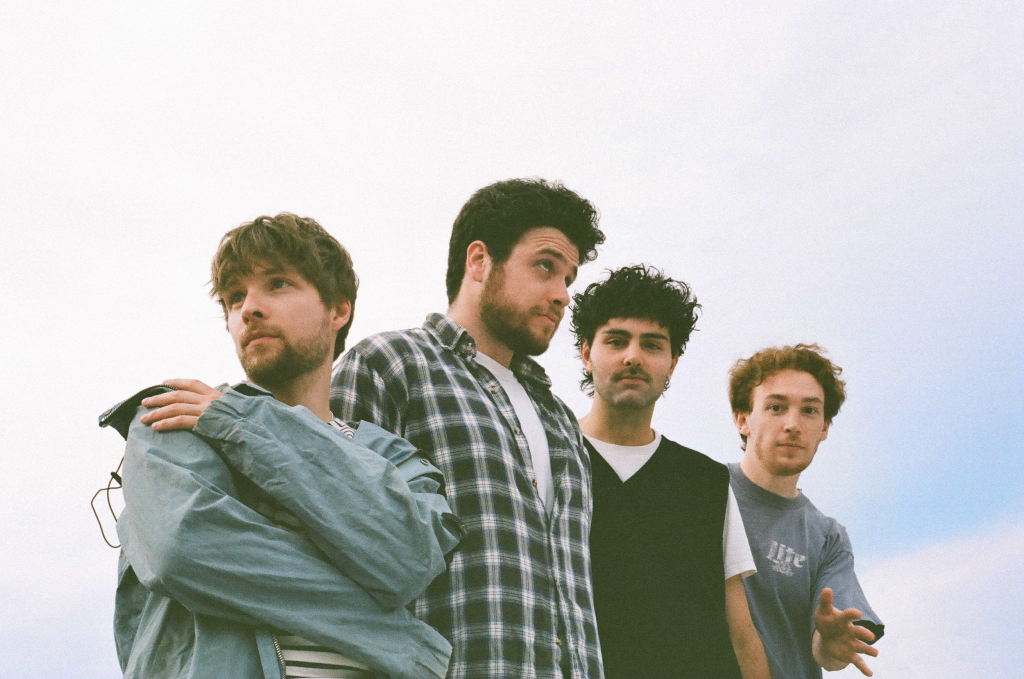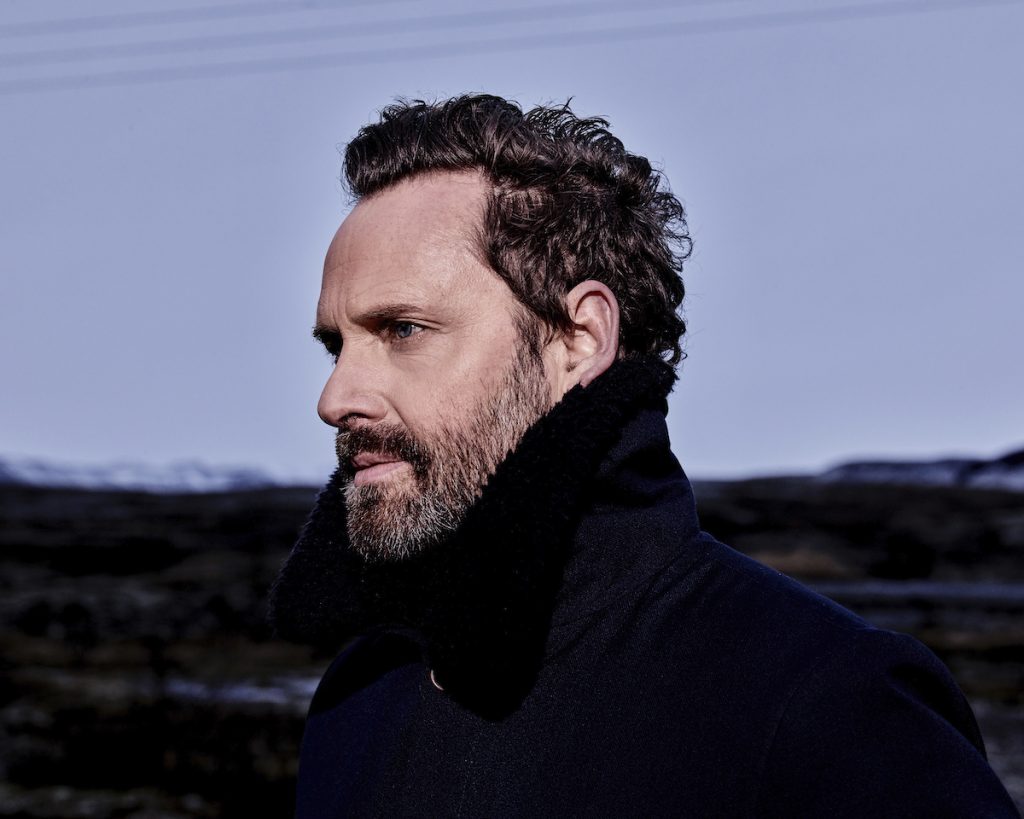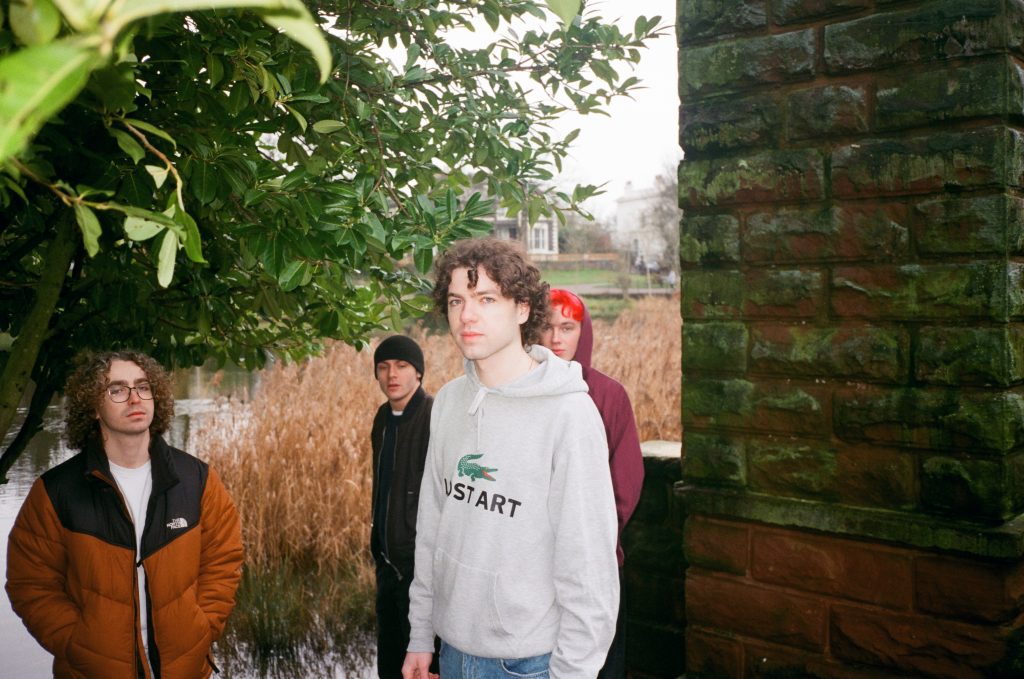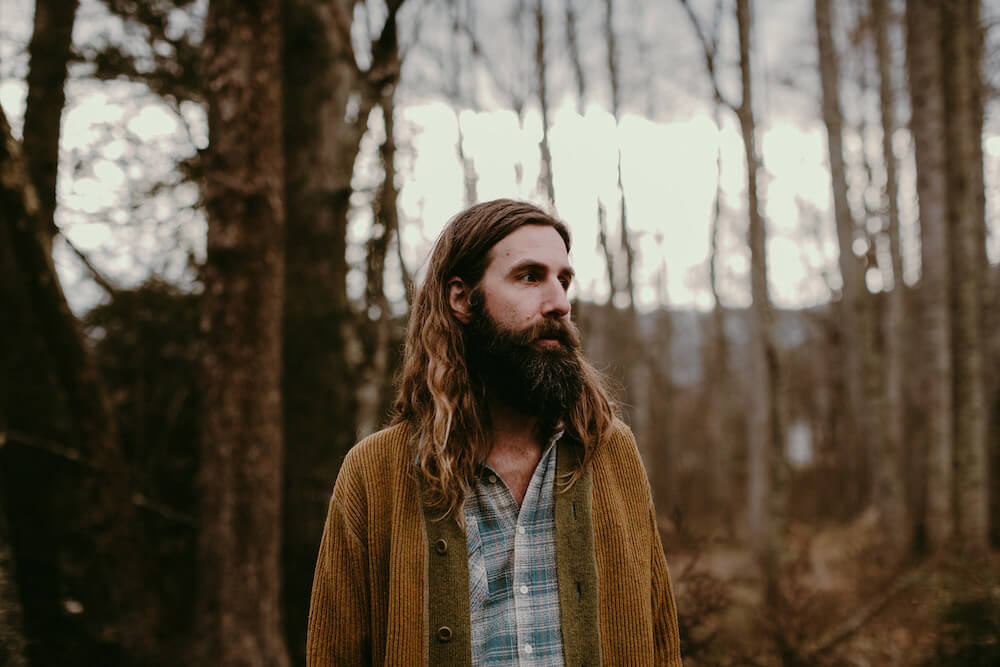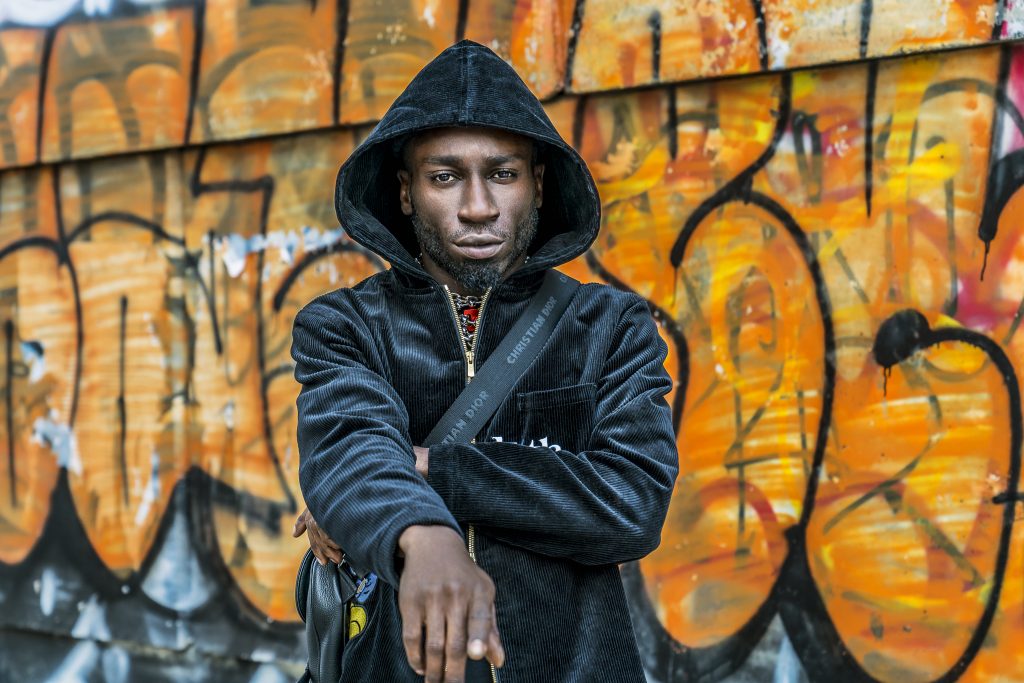Plastic Picnic’s New Album Vistalite Lights Up The Beach with 80’s Pop
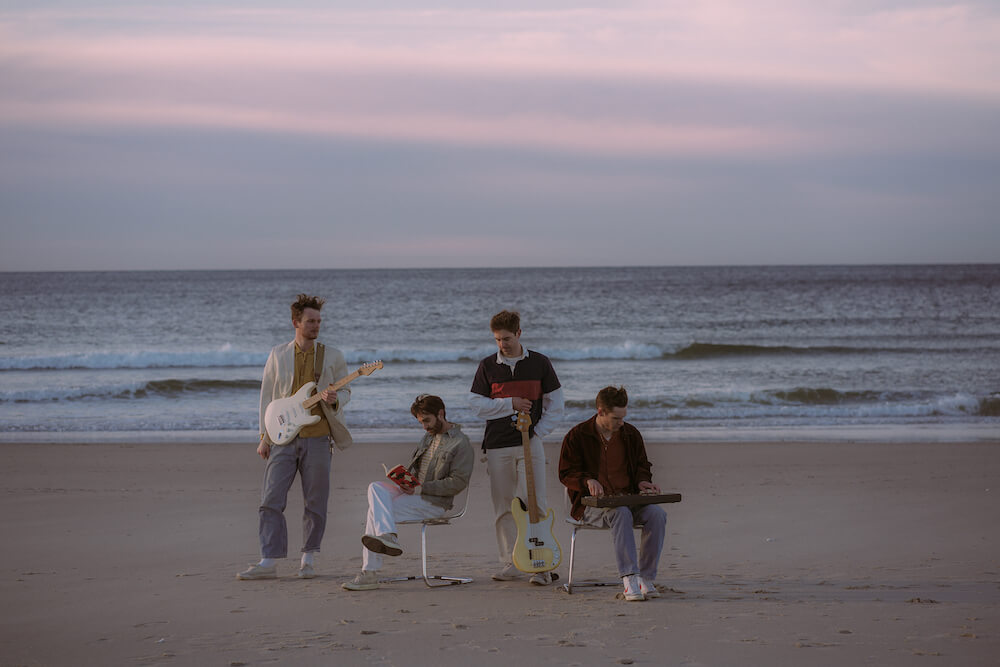
I’m in a room full of people cheering. My shoulders are smushed into other shoulders, as expected when you squeeze yourself to the front of the crowd so you can be as close to the music as possible. A disco ball dances above us while most of us dance with it. It’s a celebration, because once the clock strikes midnight, Brooklyn-based band Plastic Picnic will drop their album Vistalite.
Plastic Picnic begins playing their set. The thing about the 1980s is that the music is therapeutically timeless. Halfway through their single “After You” I find myself in an 80s dream, captivated by synth ballads, soothing guitar riffs, keyboard harmonies and a voice evoking nostalgic emotion. Instead of being at Brooklyn’s Market Hotel in 2019, I felt like I was in a hue of blue wearing a neon scrunchie, as if it were 1985.

Now based in New York, the members of Plastic Picnic are all from the Pacific Northwest. The group started when two duos, Emile Panerio & Lincoln Lute and Gordon Taylor & Marshall Hunt, were introduced to each other through a mutual friend. After making music magic, the four musicians teamed up to form Plastic Picnic. The guitar pop quartet chatted with FRONTRUNNER about the coolness of collaboration, the beauty of New York and why the Golden Days are so special.
As two duos who came together to form a larger band, how have you seen the songwriting process alter and amplify since you formed Plastic Picnic?
Lincoln: We’re constantly learning about each other’s writing techniques and musical tastes. Marshall and Gordon have more of an understanding between the two of them of what they like and how they write, and Emile and I have the same understanding between us. Most groups don’t write completely collaboratively but we’ve found that it gives us the most interesting results.
What was the inspiration behind the “After You” music video, and why did you choose to film it at Rockaway Beach? I heard through the grapevine that Emile was physically upside down in the sand. Is that true and what was it like shooting these unique scenes?
Gordon: Rockaway feels like an in-between place. Both part of New York and yet an escape. For a song about limbo and uncertainty, it seemed like an appropriate visual. We got lucky filming it too, since the day of the shoot ended up being stormy and cold. It was worth the discomfort though, since we wound up with a video that emphasizes the melancholy undercurrents of the song.
Also, yes: Emile spent a lot of time upside down with his head in the sand. We all knew being in a band would require sacrifices, but I doubt he ever had that in mind.
You developed your styles playing Seattle. What attracted you to Brooklyn?
Emile: I think post-college NYC was purely an attraction to the unknown. I had visited once before and fell in love with the city; it was so alive and inspiring. I’ve always thought of so many New York rock bands as so iconic, so perhaps that was in the back of my head, but after being in one place for my whole life, New York felt like this crazy opposite place, and I felt ready for a big change.
Gordon: Marsh and I moved out together because we were attracted to the challenge of New York. It’s a place that doesn’t cut you much slack, and I think coming here to pursue music was a moment of learning to take ourselves seriously as artists.
The theme behind Vistalite seems to be transition. What was it like as a band to transition from your freshman EP, Plastic Picnic, to Vistalite?
Lincoln: The pressure to create something greater than the last record is very real, and I think that’s where a lot of bands go wrong with their sophomore record. We weren’t trying to one-up the last one at all. Our focus was on writing songs and enjoying the process while making sure we were challenging ourselves to grow as songwriters. We had to shed the skin of the first record and understand the new mental and emotional state we were in.
You have a song titled “September Second” that is reminiscent, yet also has the upbeat energy of the beginning of autumn. What about September inspired this song?
Emile: So, one differentiation is the title is meant to be a split second in September, rather than the date September 2nd. Since the whole record is so involved with transition, September (a change of seasons, the feeling of the fleeting summer, etc.) encapsulates that transition really well. September is the bittersweet end of something great, which is exactly what the song is about.
“Cradles” was a song that stood out to me on the album because it’s a little bit darker than the others. In the chorus you sing, “After 17 months of the same drug, what’s your reason to quit if the devil comes?” Can you tell us a bit more about the role of transition in that track?
Emile: “Cradles” is about losing a close friend of mine to an opioid overdose. So the tragedy in the transition in “Cradles” is more about being aware someone you love is transitioning towards a darkness, and the fear that stopped me from getting involved until it was too late. So the final outro is a plea to others to recognize when loved ones are sliding into a dark spot, and to be proactive in helping them not get lost in it.

When listeners buy the vinyl, they receive a bonus track called “Golden Days.” What does the term ‘golden days’ mean to you?
All: Golden Days are the days you dream of, when you’re content, you’re in love and it’s just before sunset on an August night.

Photo credit: Jake Hanson
How did you get the name Plastic Picnic?
Lincoln: Our name represents two ideas that we’re interested in as a band: the natural and the artificial. Plastic is the artificial side and Picnic is the natural side. We use this dichotomy as a reference throughout our songwriting process in instrumentation, lyrics and production style.
If each of you could describe your album in three words, what would those three words be?
Emile: Self-Aware Escapism.
Marshall: Lovelorn, yearning and Indiepop.
Gordon: Wistful, melancholy and vertigo.
Lincoln: Scenic, reflective and cathartic.
What song off of the album are you most excited to perform for fans?
All: “Vistalite” — it was the most challenging song to figure out how to play live but is just a fun groovy song. I think people will enjoy the live version a lot.

